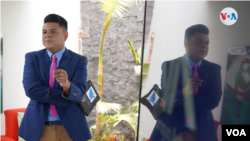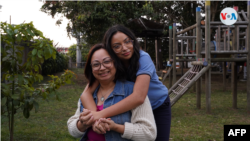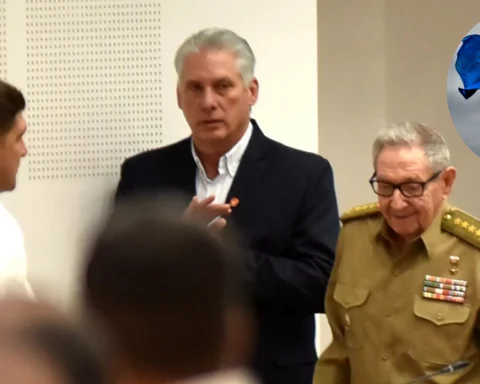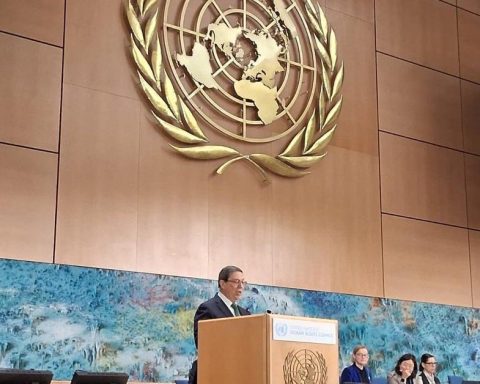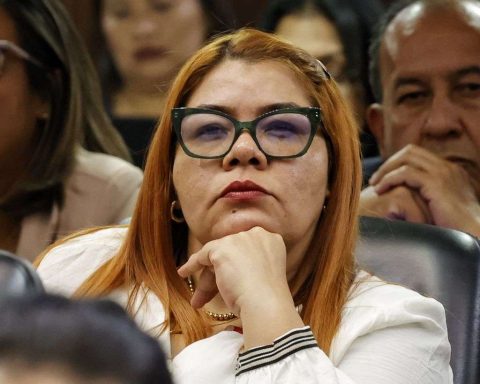when the television 100%News was standing in Managua, Nicaragua, conventional advertising managed to pay the monthly payment of journalists, but everything changed after the government of President Daniel Ortega took control of the facilities in 2018, and years later illegally expropriated building.
Now with the newsroom in exile in Costa Rica, Lucía Pineda Ubau, a former political prisoner, continues to direct the outlet, although in a smaller way. “It’s not that 24-hour news system on TV anymore, but we do keep that pace of coverage on our website and we try to keep that pace with reduced staff,” she stresses.
The operation you face 100%News It is also shared by digital media that arose in the crisis in Nicaragua and has to do with various factors, one of which is the high cost of living in Costa Rica, which is where most of the reporters are in exile.
Héctor Rosales, another Nicaraguan journalist with almost 17 years of experience, was already in Costa Rica when Ubau arrived. There he founded together with other colleagues the medium Current Nicaragua, as he says, in honor of Ubau. From there they asked for their freedom.
Rosales worked for a national television channel when she decided to leave Nicaragua after suffering, she explains, threats against her and a physical attack that she attributes to groups related to the Ortega government. In Nicaragua she earned an approximate salary of about 400 dollars.
And in exile starting from scratch was difficult. To survive, he revealed, he worked at least four days a week in a restaurant as a waiter.
“Costa Rica is a very expensive country,” says Rosales, although he acknowledges on the other hand that the country has also opened its doors to journalists in the legal area.
“The economic limitations here in Costa Rica are on the surface. There are always many limitations so it is a fairly expensive country. At one point I thought I would stop reporting because we did not have the financial resources to be able to survive here in exile.”
Like Rosales, other journalists thought the same thing and have made it concrete in the last five years of political crisis that Nicaragua is experiencing. A report by Independent Journalists and Communicators of Nicaragua (PCIN) published in March of this year revealed that 34% of exiled reporters have abandoned the profession, and one of the reasons is the economic outlook.
Most of the journalists who have gone into exile have chosen Costa Rica as their first option because of its proximity to Managua, however they face the scarcity of one of the most expensive countries in Latin America, according to the index known as “Big Mac” which is popularized by magazine The Economist.
According to this index in 2021, Costa Rica is among the five expensive countries to live in Latin America.
The challenge of continuing to inform Nicaragua
Journalist Martha Irene Sánchez, director of the Nicaraguan outlet republic 18who was also formed in exile, says he also faces challenges in Costa Rica, but stresses that he is continuing because of “the realities of the people in Nicaragua who are subjected to a state of terror and systematic violence.”
“Independent journalism is doing a great job in the search for a truth that the regime of Daniel Ortega and Rosario Murillo has wanted to hide at all costs. It motivates me to continue doing journalism in exile because I believe that with this we contribute to the truth. Through journalism, in one way or another, we contribute to democracy,” Sánchez told the Voice of America.
Ubau coincides separately with Sánchez but beyond financing they also support another challenge: to continue with an agenda focused on Nicaragua.
“People demand to see slightly more compressed, faster news, videos and articles on our website, www.100noticias.com.ni”, mentions Ubau.
In Nicaragua Actual the agenda is similar to that of a television station, says Héctor Rosales. In the morning they make a newscast with an agenda of about 25 minutes with the most relevant news of the moment, that from Monday to Friday; in 100%NewsLucía Pineda maintains programs on YouTube such as 100%Interviewsamong others.
“We are always trying not to have that disconnection with the reality of Nicaragua. Sometimes I spend a lot of time talking to people who are in Nicaragua,” says Ubau.
Connect with the Voice of America! Subscribe to our channel Youtube and activate notifications, or follow us on social networks: Facebook, Twitter and Instagram.
